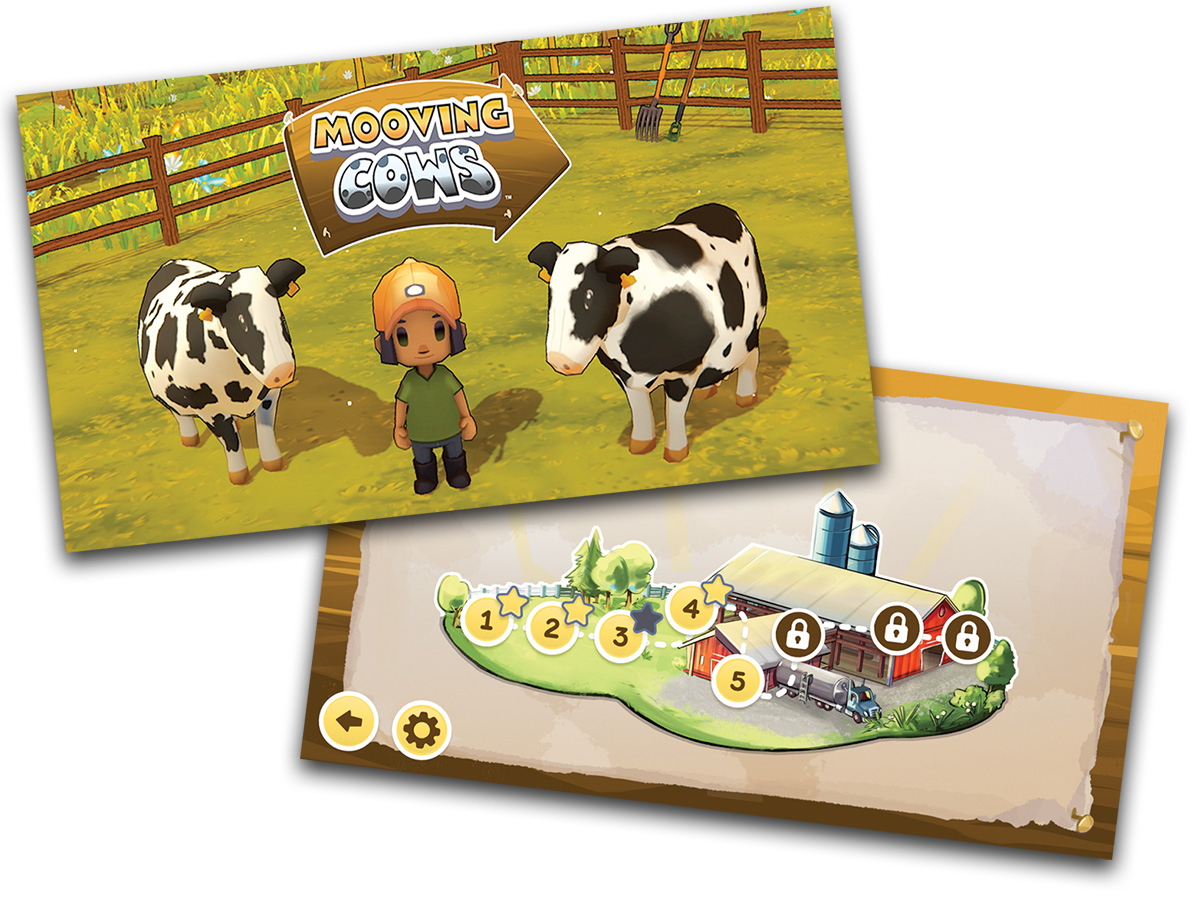Cows: The Video Game
The UW creates a virtual farm to train workers in the dairy industry.

The happier the cows at the end of a level, the more milk for the farmer.
Move over, FarmVille. There’s a new farming video game on the market. Mooving Cows, developed by UW–Madison researchers and released on app stores in January, provides an interactive training experience for the dairy industry.
While UW assistant professor Jennifer Van Os traveled the state in her role as an animal welfare extension specialist, the most common request she fielded from dairy producers was to train staff on proper cow handling. Continuing education in animal handling is an industry requirement, but most free training resources are low-engagement readings and videos. Mooving Cows offers an active learning environment that transports players to a virtual farm and simulates cow handling from the safety of a tablet.
“In a digital game setting, we can remove the risks of causing stress or injury to real cows or people,” Van Os says.
In Mooving Cows, players control the actions of a farmhand and are tasked with guiding cows out of a pen or around a milking parlor. Over eight levels with escalating difficulty, they learn how to gently direct the animals’ movement and how to cautiously handle unpredictable cows in heat. The game rewards patience with stubborn cows and penalizes rash actions that can startle them, such as sudden movements and loud noises. The player’s actions affect the cows’ behaviors, stress levels, and productivity. The happier the cows at the end of the level, the more milk for the farmer.
An early evaluation of Mooving Cows found that it increased knowledge and confidence in cow handling for the Wisconsin dairy employees who played it. Within two months of release, the free app had been downloaded nearly 7,000 times by users across 98 countries.
One reviewer wrote: “This is a great move forward for animal handling education. … [The] behavioral tendencies from the animals very much reminded me of difficulties I had in training farmhands.”
Published in the Summer 2024 issue



Comments
No comments posted yet.